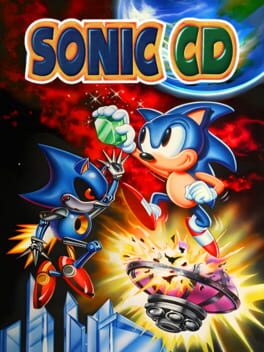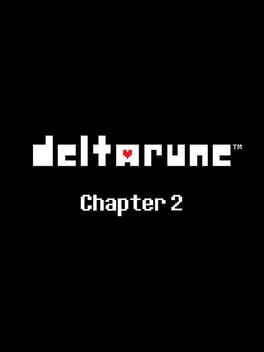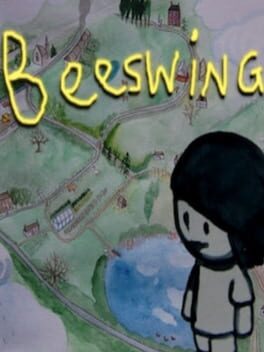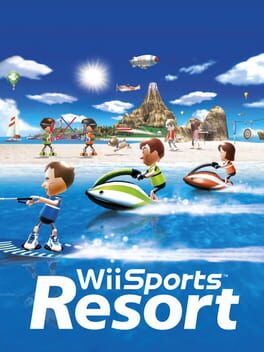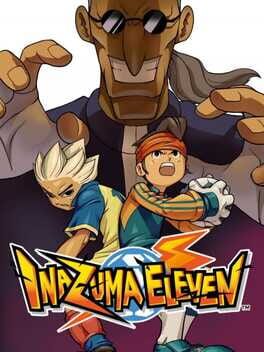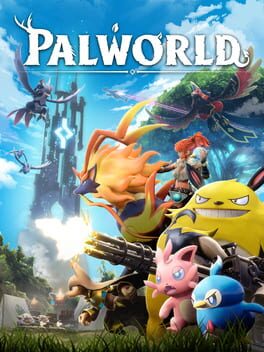finalresort
36 Reviews liked by finalresort
Undertale
2015
Undertale has something that a lot of publishers lost over the years: HEART. I started this review not trying to make a joke with the heart mechanic on battles but now I have to start with it. =)
The battles are unique. It's not a classic RPG but the game has some elements of it... It's really hard to describe how the battles work but I can garantiee that's different and really fun. You have your regular attacks, items or you can talk with the enemy on your turns. On enemies' turn, you can dodge their attacks controlling a small heart in a box. It doesn't sound fun but it really is. Every battle is different and you have a lot of options to end it.
The story is simple but AMAZING and UNFORGETTABLE. It's incredible how a small developer could add alternative endings. Every battle will be important to your end. I can't say much to avoid spoilers but you are a kid that fell on a underground world full of monsters and trying to escape.
One thing that I have to say it's that you can see how much this project was important to its developer. I was playing Gears 5 at the same time I was playing Undertale and I could see the difference between something made only to make money and a game that tried to give a journey.
Please, give Undertale a chance. I hope that this review makes you full of DETERMINATION!
The battles are unique. It's not a classic RPG but the game has some elements of it... It's really hard to describe how the battles work but I can garantiee that's different and really fun. You have your regular attacks, items or you can talk with the enemy on your turns. On enemies' turn, you can dodge their attacks controlling a small heart in a box. It doesn't sound fun but it really is. Every battle is different and you have a lot of options to end it.
The story is simple but AMAZING and UNFORGETTABLE. It's incredible how a small developer could add alternative endings. Every battle will be important to your end. I can't say much to avoid spoilers but you are a kid that fell on a underground world full of monsters and trying to escape.
One thing that I have to say it's that you can see how much this project was important to its developer. I was playing Gears 5 at the same time I was playing Undertale and I could see the difference between something made only to make money and a game that tried to give a journey.
Please, give Undertale a chance. I hope that this review makes you full of DETERMINATION!
Undertale
2015
This review contains spoilers
Appreciating Undertale is appreciating its commitment to encouraging empathy from the player at every step of the experience. Think back to your first run through the game. Did you actually spare or kill every enemy? Your answer is almost certainly no, and if you did accomplish that, then you went out of your way to achieve it. On a casual run, the Neutral path is what most players will follow because on top of the Pacifist and Genocide routes requiring you to go out of your way to trigger them, a player will try sparing enemies the way the game promised they could instead of killing them. Learning what makes each monster happy requires engaging with them, but it’s not so much about the difficulty of reaching their good side as it is about showing empathy to characters that you would typically have no reason to care about. You can end a battle like any other RPG, and you probably did at some point that first playthrough. It’s convenient, it’s familiar, and it just works.
It’s a proven fact humans instinctively show empathy towards others, especially those we consider our equals, but that all seems to change when we play choice-driven games. In a game with multiple endings, for example, we know the story changes for whichever path we take. We also take for granted that none of our actions will carry over into subsequent playthroughs.
If we are unconcerned with the possible consequences of choosing a darker path in games where we could easily avoid them, then perhaps we haven’t been given a reason to treat the game’s world as if it’s alive. In reality, we all do our best to live a moral life since we understand the positive effects of such choices. We learned that because we were surrounded by positive influences. That is why Flowey is the only “evil” character in Undertale. Asriel lost his empathy after being turned away by the humans in his world, and he had no one to remind him why “KILL OR BE KILLED” is a false narrative until Frisk entered the picture.
Giving the player consequences for their actions that last beyond one playthrough is intriguing, but there’s a reason games often avoid it. Sans notes the player’s determination to see everything the game has to offer “not out of any desire for good and evil, but just because you think you can, and because you ‘can’, you ‘have to.’” In other words, a completionist attitude clashes with the nature of permanent consequences in a game. That’s not to say completionists are wrong for looking at games as vessels for interesting content. Some games that offer different choices, like Fallout 3 or Skyrim, arguably learn more towards discovery and rewarding curiousity. If the player’s choices locked off content forever, then curious players may stop playing the game altogether. That’s why starting fresh on subsequent playthroughs is the norm, because the developers often want players to see everything they created. Plenty of great games were made with that mindset, so it’s a totally valid approach, but I hope Undertale encourages other developers to focus on removing that gap between the player and the game.
The empathy I cultivated for the monsters made the Genocide route incredibly difficult to stomach. I went down that rabbit hole because of that completionist instinct, meaning I treated Undertale as a game instead of a living world. The resulting experience shook me to my core not just because of what I did, but the consequences that accompanied it. The world itself is erased because there’s nothing else to do. Was it time for me to move on? Not just yet. I decided to restore the world by selling Frisk’s soul, forever tainting future Pacifist runs.
I was already impressed with Undertale’s dynamic narrative after my first Pacifist run, but the Genocide ending cemented Toby Fox’s debut as an all-time favorite. A game that responds to player choices long after you expect it to. It comments on the consumerist heart in completing games and how that can affect our perception of the product. But most of all, it is brimming with faith, hope, and love for humanity, asking us to express more empathy and optimism in our personal lives. As such, I think it’s only fair to end this by asking any readers to consider one thing you’re struggling with. Whatever it is, I know you can turn it around. I have faith in you and I hope that by hearing this, you are filled with DETERMINATION.
It’s a proven fact humans instinctively show empathy towards others, especially those we consider our equals, but that all seems to change when we play choice-driven games. In a game with multiple endings, for example, we know the story changes for whichever path we take. We also take for granted that none of our actions will carry over into subsequent playthroughs.
If we are unconcerned with the possible consequences of choosing a darker path in games where we could easily avoid them, then perhaps we haven’t been given a reason to treat the game’s world as if it’s alive. In reality, we all do our best to live a moral life since we understand the positive effects of such choices. We learned that because we were surrounded by positive influences. That is why Flowey is the only “evil” character in Undertale. Asriel lost his empathy after being turned away by the humans in his world, and he had no one to remind him why “KILL OR BE KILLED” is a false narrative until Frisk entered the picture.
Giving the player consequences for their actions that last beyond one playthrough is intriguing, but there’s a reason games often avoid it. Sans notes the player’s determination to see everything the game has to offer “not out of any desire for good and evil, but just because you think you can, and because you ‘can’, you ‘have to.’” In other words, a completionist attitude clashes with the nature of permanent consequences in a game. That’s not to say completionists are wrong for looking at games as vessels for interesting content. Some games that offer different choices, like Fallout 3 or Skyrim, arguably learn more towards discovery and rewarding curiousity. If the player’s choices locked off content forever, then curious players may stop playing the game altogether. That’s why starting fresh on subsequent playthroughs is the norm, because the developers often want players to see everything they created. Plenty of great games were made with that mindset, so it’s a totally valid approach, but I hope Undertale encourages other developers to focus on removing that gap between the player and the game.
The empathy I cultivated for the monsters made the Genocide route incredibly difficult to stomach. I went down that rabbit hole because of that completionist instinct, meaning I treated Undertale as a game instead of a living world. The resulting experience shook me to my core not just because of what I did, but the consequences that accompanied it. The world itself is erased because there’s nothing else to do. Was it time for me to move on? Not just yet. I decided to restore the world by selling Frisk’s soul, forever tainting future Pacifist runs.
I was already impressed with Undertale’s dynamic narrative after my first Pacifist run, but the Genocide ending cemented Toby Fox’s debut as an all-time favorite. A game that responds to player choices long after you expect it to. It comments on the consumerist heart in completing games and how that can affect our perception of the product. But most of all, it is brimming with faith, hope, and love for humanity, asking us to express more empathy and optimism in our personal lives. As such, I think it’s only fair to end this by asking any readers to consider one thing you’re struggling with. Whatever it is, I know you can turn it around. I have faith in you and I hope that by hearing this, you are filled with DETERMINATION.
Sonic CD
1993
Sonic CD is good and people misunderstand what makes it good.
Sonic already kind of has a problem where people want an extremely specific form of gameplay out of it and mentally disengage whenever it's not scratching that itch. So it's not really surprising that people dislike CD so much with its 'playground' mentality to level design; aimless and chaotic routes that weave inorganically with each other doesn't facilitate the speedrunning flow that people want from the classic sonic model. But that's kind of the point from an aesthetic sense? I always took the ruptured level design as a complement to the game's narrative themes of untainted nature becoming abruptly industrialized, and that messy stylistic relationship gets reinforced further by both soundtracks: JP bringing out the dreamlike pop that NiGHTS would later champion, while US is more overtly ominous and uncomfortable. The game wants you to feel that environmental conflict between the harmonious chaos of Little Planet's flora while being corrupted by Robotnik's bizarre machines. Even from a gameplay standpoint, there's still a lot of fun to be had in learning how to workshop optimal routes for time trials. There's a reason the stages are so short and the game rewards you so heavily for those time attack scores.
The only major failing that I think makes CD hard to come back to is that for how open-ended its levels are, it doesn't give you a lot of incentive to explore them. The metal Sonic generators and transporters are the only objects that occupy these stages and reward you for trekking around. But I also don't really know what the design solution to this would be: Adding spontaneous collectibles could easily turn exploration into a begrudging chore and take away from the freedom of exploring levels at your own pace. On the flipside, I think the existence of special stages as an alternate means for unlocking the true ending is kind of genius: You can take the exploration route, or stick to the Sonic formula of platforming fast, and this duality supports the franchise's long-running depiction of their character's agency and motivations. Sonic is more than just being the hero; he's doing it his own style and he won't change.
I hope CD being ported again via Origins doesn't introduce another wave of jaded thinkpiecers trying to tout CD as the 'overrated letdown' of the franchise. It deserves more appreciation for the ways Sonic's framework allows for experimental design.
Sonic already kind of has a problem where people want an extremely specific form of gameplay out of it and mentally disengage whenever it's not scratching that itch. So it's not really surprising that people dislike CD so much with its 'playground' mentality to level design; aimless and chaotic routes that weave inorganically with each other doesn't facilitate the speedrunning flow that people want from the classic sonic model. But that's kind of the point from an aesthetic sense? I always took the ruptured level design as a complement to the game's narrative themes of untainted nature becoming abruptly industrialized, and that messy stylistic relationship gets reinforced further by both soundtracks: JP bringing out the dreamlike pop that NiGHTS would later champion, while US is more overtly ominous and uncomfortable. The game wants you to feel that environmental conflict between the harmonious chaos of Little Planet's flora while being corrupted by Robotnik's bizarre machines. Even from a gameplay standpoint, there's still a lot of fun to be had in learning how to workshop optimal routes for time trials. There's a reason the stages are so short and the game rewards you so heavily for those time attack scores.
The only major failing that I think makes CD hard to come back to is that for how open-ended its levels are, it doesn't give you a lot of incentive to explore them. The metal Sonic generators and transporters are the only objects that occupy these stages and reward you for trekking around. But I also don't really know what the design solution to this would be: Adding spontaneous collectibles could easily turn exploration into a begrudging chore and take away from the freedom of exploring levels at your own pace. On the flipside, I think the existence of special stages as an alternate means for unlocking the true ending is kind of genius: You can take the exploration route, or stick to the Sonic formula of platforming fast, and this duality supports the franchise's long-running depiction of their character's agency and motivations. Sonic is more than just being the hero; he's doing it his own style and he won't change.
I hope CD being ported again via Origins doesn't introduce another wave of jaded thinkpiecers trying to tout CD as the 'overrated letdown' of the franchise. It deserves more appreciation for the ways Sonic's framework allows for experimental design.
Deltarune: Chapter 2
2021
Undertale
2015
Beeswing
2014
"A good tree has victims".
Stare close enough at the screen and you start to see the human hands appreciatively building every one of Beeswing's vignettes. I was thoroughly not expecting a game to understand, to so deftly and honestly articulate grief, nostalgia and mending. Beeswing is just honest, It’s not trying to impress anyone or manipulate them into feeling something, it simply wishes to exist - just as its inhabitants live quietly near and far from their loved ones, opening up to anyone who'll listen. Beeswing isn’t sad, but it isn’t happy either. It recounts the lives of (I assume) people the developer knew growing up with a plain biographical melancholy that is difficult to properly explain. I’m so used to media recounting horrible events, making me depressed for the sake of a narrative that’s supposed to mean something. But Beeswing never tried to bring me down, in fact it’s so clean in its indifference to how the player feels that it would seem cold if not for how tangible and raw the things it says and the way it shows you them are. A recurring motif in this game in itself is this kind of honesty, not necessarily to "make the most" of our limited time on this earth, but to live true - to yourselves and others, as it's the greatest way to reciprocate love.
Stare close enough at the screen and you start to see the human hands appreciatively building every one of Beeswing's vignettes. I was thoroughly not expecting a game to understand, to so deftly and honestly articulate grief, nostalgia and mending. Beeswing is just honest, It’s not trying to impress anyone or manipulate them into feeling something, it simply wishes to exist - just as its inhabitants live quietly near and far from their loved ones, opening up to anyone who'll listen. Beeswing isn’t sad, but it isn’t happy either. It recounts the lives of (I assume) people the developer knew growing up with a plain biographical melancholy that is difficult to properly explain. I’m so used to media recounting horrible events, making me depressed for the sake of a narrative that’s supposed to mean something. But Beeswing never tried to bring me down, in fact it’s so clean in its indifference to how the player feels that it would seem cold if not for how tangible and raw the things it says and the way it shows you them are. A recurring motif in this game in itself is this kind of honesty, not necessarily to "make the most" of our limited time on this earth, but to live true - to yourselves and others, as it's the greatest way to reciprocate love.
Omori
2020
Wii Sports Resort
2009
Inazuma Eleven
2008
It is a shame that every system is a little bit bad at best since turning football into a tactical JRPG can be very interesting. As uninspired as the game may be in that regard, the ideas and the heart are still present elsewhere.
Thanks to the game having no restrictions on where it can go, and being at least partially conscious about how stupid the ideas can be, what keeps you wanting more episode after episode is knowing that anything goes and that it will usually have some good heart in it. It may sound surrealist to say that people here get to be friends just because they share an honest passion in football, but in reality it isn’t something that far away from how it was when we were kids (or teenagers (or adults if we were more honest)). What I like the most is that the story practically ignores any logic because it knows it has enough heart. Anyone is welcome on the team as long as Mark feels that they really want to play football in a sincere way.
One of my favorite moments is when Mark and his friends look for the players that his grandfather trained years ago in a search for guidance. Of course, some of them have moved on, their story didn’t end up well and they fear that the new generation will meet the same doomed fate. However, when Mark's attitude transports them to a time where someone put effort into making them comfortable in something as simple as playing football in a team they cannot back down. I guess that when I played this years ago I still was at the age to side more the team feelings, but now I’m closer to the retired players view. Maybe we didn’t have the best outcome in our time, but how can we deny the future if the spirit lives on?
Thanks to the game having no restrictions on where it can go, and being at least partially conscious about how stupid the ideas can be, what keeps you wanting more episode after episode is knowing that anything goes and that it will usually have some good heart in it. It may sound surrealist to say that people here get to be friends just because they share an honest passion in football, but in reality it isn’t something that far away from how it was when we were kids (or teenagers (or adults if we were more honest)). What I like the most is that the story practically ignores any logic because it knows it has enough heart. Anyone is welcome on the team as long as Mark feels that they really want to play football in a sincere way.
One of my favorite moments is when Mark and his friends look for the players that his grandfather trained years ago in a search for guidance. Of course, some of them have moved on, their story didn’t end up well and they fear that the new generation will meet the same doomed fate. However, when Mark's attitude transports them to a time where someone put effort into making them comfortable in something as simple as playing football in a team they cannot back down. I guess that when I played this years ago I still was at the age to side more the team feelings, but now I’m closer to the retired players view. Maybe we didn’t have the best outcome in our time, but how can we deny the future if the spirit lives on?
Wii Sports Resort
2009
Palworld
2024
Wii Sports Resort
2009
EarthBound
1994
Omori
2020
Omori is a wonderfully tragic video game. It made me laugh, smile, hurt, and cry. It’s a game that sticks in your head weeks after you play. There are also so many routes that to really experience everything you will need to have multiple playthroughs. This shouldn’t be a problem though as the game is hard to put down. It blends horror, comedy, and the JRPG elements beautifully. It is a game that if you play to the end I’m sure will touch you in some way.
Omori
2020
Words are unable to express how much I love this game. Fortunately I don't really relate to any of the emotions expressed in the game, yet I felt all of them while playing.
I am grateful I am who I am and the experience I had with this game just reinforced that. Life is a thing to be cherished, and so is this game.
I am grateful I am who I am and the experience I had with this game just reinforced that. Life is a thing to be cherished, and so is this game.

